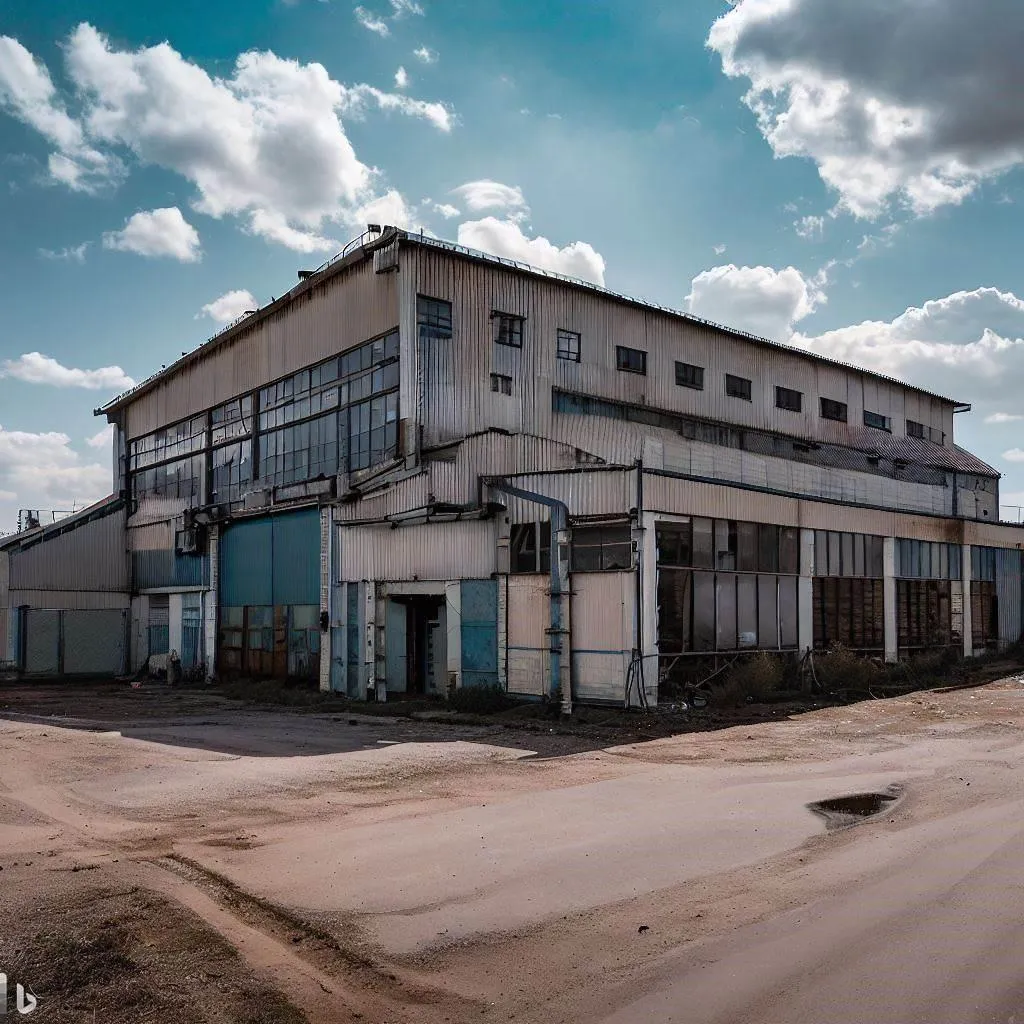Your Trusted Houston Commercial Real Estate Brokerage
Viking Enterprise LLC is part of eXp Commercial, an agent-led, cloud-based commercial real estate brokerage with agents across the globe.
Email: [email protected]
Call: (281) 222-0433
Your Trusted Katy / Fulshear & Houston Commercial Real Estate Brokerage
Viking Enterprise LLC is part of eXp Commercial, an agent-led, cloud-based commercial real estate brokerage with agents across the globe.
Looking to invest, buy, sell or lease? We can help.
Looking to invest, buy, sell or lease? We can help.
FEATURED PROPERTIES




OUR FEATURED TENANTS & CLIENTS
eXp Commercial - Viking Enterprise Team's real estate network provides unparalleled commercial real estate services to Tenants and Landlords around the Katy- Houston area. Our knowledge, experience, and reputation sets us apart from many firms.
A commercial property owner might have various plans that would necessitate the services of a commercial real estate broker. Some of the common scenarios include:
1. Selling the Property: If the owner decides it’s time to sell the property, a commercial real estate broker can help determine the market value, market the property effectively, and negotiate with potential buyers to get the best possible price.
2. Leasing Space: For property owners looking to lease out part or all of their commercial space, a broker can help find suitable tenants, negotiate lease terms, and ensure the lease agreements meet all legal requirements and serve the owner’s best interests.
3. Acquiring More Properties: Owners looking to expand their portfolio would benefit from a broker's knowledge of the market, access to listings, and negotiation skills to secure additional properties at favorable terms.
4. Property Management: While not all brokers offer this service, some commercial real estate brokers or their affiliates offer property management services. This can be particularly appealing for owners who prefer a hands-off approach or are managing properties from a distance.
5. Market Analysis: Owners considering future developments, renovations, or rebranding of their property might engage a broker for a comprehensive market analysis. This helps in understanding current market trends, the demand for different types of spaces, and potential returns on investment for various strategies.
6. Refinancing: In situations where a property owner is looking to refinance their property, a commercial real estate broker can provide valuable insights into the property’s current market value, assist in gathering necessary documentation, and even help in finding the best financing options.
7. Partnership or Investment Opportunities: Owners interested in exploring partnerships, joint ventures, or seeking investors for expansion or development projects might use a broker to find and vet potential partners or investors.
8. Consulting on Zoning and Use Changes: When contemplating a change in the use of the property or dealing with zoning issues, a broker with experience in local regulations and the specific property type can provide guidance and strategic planning assistance.
9. Exit Strategy Planning: For owners looking to plan an exit strategy from their investment, whether it’s through a strategic sale or a gradual winding down of operations, brokers can provide market insights, timing advice, and valuation services to optimize the exit process.
In any of these scenarios, the expertise and services provided by a commercial real estate broker can save the property owner time and money, while also providing access to a wider network of potential buyers, tenants, and industry professionals. Give us a call today!
Reviews

🚀 Trump’s $900B Sovereign Wealth Fund: A Game-Changer for CRE? 🏢
🚀 Trump’s $900B Sovereign Wealth Fund: A Game-Changer for CRE? 🏢
💰 U.S. Sovereign Wealth Fund Plans: How It Could Reshape Real Estate 🏠
I’ve got to say, when I first read about Trump’s push for a $900 billion U.S. sovereign wealth fund, my initial reaction was, Wait, what?! The U.S. is running a $36 trillion national debt, yet we’re talking about creating one of the biggest investment funds in the world? It’s a bold move, to say the least. But here’s where it gets really interesting: Commercial Real Estate (CRE) could be a major focus.
So, let’s break this down. What exactly is a sovereign wealth fund, how would the U.S. create one, and what does this mean for real estate investors, developers, and the market as a whole?
What Is a Sovereign Wealth Fund?
Sovereign wealth funds (SWFs) are essentially giant investment pools owned by a country’s government. These funds typically come from natural resource exports (think oil in Saudi Arabia or Norway), trade surpluses, or excess government revenue. The U.S. has never had a national SWF, but Trump just signed an executive order directing Commerce Secretary Howard Lutnick and Treasury Secretary Scott Bessent to draft a plan in 90 days.
Trump envisions the U.S. sovereign wealth fund rivaling Saudi Arabia’s, which has nearly $925 billion in assets under management. The kicker? He wants to monetize U.S. assets—possibly including government-held real estate, equity stakes in major companies, and even tariff revenue.
What Could This Mean for Commercial Real Estate?
Here’s the part where CRE investors should perk up. Historically, sovereign wealth funds are major players in commercial real estate. Think about it—these funds look for stable, income-generating assets, and what’s better than real estate for that?
Some key impacts could be:
1. Increased Institutional Investment in CRE
If this fund launches and real estate is a focus, we could see a massive influx of capital into U.S. commercial properties. Think Class A office buildings, logistics hubs, life sciences facilities, and even mixed-use developments.
2. Government-Owned Properties Getting a Makeover
The federal government currently owns $1.3 trillion in real estate. If Trump is serious about “monetizing the asset side of the U.S. balance sheet,” we might see government buildings repurposed, leased, or even sold to private investors. Imagine some of those underutilized federal buildings turning into high-end office spaces or luxury mixed-use properties.
3. CRE Development in ‘Strategic’ Sectors
Trump has hinted that the sovereign wealth fund could invest in manufacturing hubs, defense infrastructure, and medical research facilities. If CRE gets a piece of this pie, developers could see new opportunities in industrial real estate, R&D parks, and even biotech campuses.
4. Impact on Real Estate Financing & Debt Markets
With the CRE debt market tightening and concerns over refinancing risks, a U.S. sovereign wealth fund could step in as a stabilizing force, buying up distressed assets and backing new development projects.
Where’s the Money Coming From?
Now, here’s the big question—how do you fund a sovereign wealth fund in a country with a $36 trillion national debt? Unlike Saudi Arabia or Norway, we don’t have oil revenue flooding in to finance this. But Trump and his economic team have floated a few ideas:
✅ Tariff Revenue – Tariffs on imports could be redirected into the fund.
✅ Equity Stakes in Major Companies – The government could take warrants or equity stakes in companies that benefit from federal programs, including those involved in vaccine distribution or infrastructure.
✅ Monetizing Government-Owned Assets – Selling or leasing federal properties, public land, or infrastructure assets could be a key revenue source.
Of course, this is all speculative, and there’s no guarantee that Congress or future administrations will greenlight this plan.
Not Everyone’s on Board
Economists and policy experts are already sounding alarms over oversight, funding mechanisms, and potential conflicts of interest. Joseph Brusuelas, Chief Economist at RSM US LLP, called the plan “an interesting idea that will prove problematic at best.”
One of the biggest concerns? How will the government manage investments without political interference? Sovereign wealth funds in other countries are usually independent, but given the U.S. political landscape, maintaining neutrality could be challenging.
Final Thoughts: A CRE Goldmine or Just Political Posturing?
If this sovereign wealth fund actually materializes, it could inject billions into U.S. commercial real estate—potentially fueling new developments, revitalizing government properties, and stabilizing the office and industrial markets. However, the funding source remains unclear, and political roadblocks could stall progress.
For real estate investors and developers, this is a space to watch closely. If the government starts offloading properties, financing new CRE deals, or investing in infrastructure, the ripple effects could be huge.
So, what do you think? Could this be the next big CRE investment wave, or is this just another headline-grabbing move? Drop your thoughts in the comments! ⬇️👇
#CommercialRealEstate #Trump #SovereignWealthFund #RealEstateInvestment #CRE #EconomicPolicy
Looking to buy, sell, or finance commercial real estate?
Work with an experienced Commercial Real Estate & Mortgage Broker you can trust!
Call me at 281-222-0433 today!
https://www.houstonrealestatebrokerage.com/
https://www.houstonrealestatebrokerage.com/houston-cre-navigator
https://www.commercialexchange.com/agent/653bf5593e3a3e1dcec275a6
http://expressoffers.com/[email protected]
© 2023-2024 Bill Rapp, Broker Associate, eXp Commercial Viking Enterprise Team
eXp Commercial - Viking Enterprise team real estate network provides unparalleled commercial real estate services to Tenants and Landlords around the greater Katy & Houston MSA area. Our knowledge, experience, and reputation sets us apart from many firms.
A commercial property owner might have various plans that would necessitate the services of a commercial real estate broker. Some of the common scenarios include:
1. Selling the Property: If the owner decides it’s time to sell the property, a commercial real estate broker can help determine the market value, market the property effectively, and negotiate with potential buyers to get the best possible price.
2. Leasing Space: For property owners looking to lease out part or all of their commercial space, a broker can help find suitable tenants, negotiate lease terms, and ensure the lease agreements meet all legal requirements and serve the owner’s best interests.
3. Acquiring More Properties: Owners looking to expand their portfolio would benefit from a broker's knowledge of the market, access to listings, and negotiation skills to secure additional properties at favorable terms.
4. Property Management: While not all brokers offer this service, some commercial real estate brokers or their affiliates offer property management services. This can be particularly appealing for owners who prefer a hands-off approach or are managing properties from a distance.
5. Market Analysis: Owners considering future developments, renovations, or rebranding of their property might engage a broker for a comprehensive market analysis. This helps in understanding current market trends, the demand for different types of spaces, and potential returns on investment for various strategies.
6. Refinancing: In situations where a property owner is looking to refinance their property, a commercial real estate broker can provide valuable insights into the property’s current market value, assist in gathering necessary documentation, and even help in finding the best financing options.
7. Partnership or Investment Opportunities: Owners interested in exploring partnerships, joint ventures, or seeking investors for expansion or development projects might use a broker to find and vet potential partners or investors.
8. Consulting on Zoning and Use Changes: When contemplating a change in the use of the property or dealing with zoning issues, a broker with experience in local regulations and the specific property type can provide guidance and strategic planning assistance.
9. Exit Strategy Planning: For owners looking to plan an exit strategy from their investment, whether it’s through a strategic sale or a gradual winding down of operations, brokers can provide market insights, timing advice, and valuation services to optimize the exit process.
In any of these scenarios, the expertise and services provided by a commercial real estate broker can save the property owner time and money, while also providing access to a wider network of potential buyers, tenants, and industry professionals. Give us a call today!
Find the perfect location for your business.
Let us help your business succeed.

🚀 Trump’s $900B Sovereign Wealth Fund: A Game-Changer for CRE? 🏢
🚀 Trump’s $900B Sovereign Wealth Fund: A Game-Changer for CRE? 🏢
💰 U.S. Sovereign Wealth Fund Plans: How It Could Reshape Real Estate 🏠
I’ve got to say, when I first read about Trump’s push for a $900 billion U.S. sovereign wealth fund, my initial reaction was, Wait, what?! The U.S. is running a $36 trillion national debt, yet we’re talking about creating one of the biggest investment funds in the world? It’s a bold move, to say the least. But here’s where it gets really interesting: Commercial Real Estate (CRE) could be a major focus.
So, let’s break this down. What exactly is a sovereign wealth fund, how would the U.S. create one, and what does this mean for real estate investors, developers, and the market as a whole?
What Is a Sovereign Wealth Fund?
Sovereign wealth funds (SWFs) are essentially giant investment pools owned by a country’s government. These funds typically come from natural resource exports (think oil in Saudi Arabia or Norway), trade surpluses, or excess government revenue. The U.S. has never had a national SWF, but Trump just signed an executive order directing Commerce Secretary Howard Lutnick and Treasury Secretary Scott Bessent to draft a plan in 90 days.
Trump envisions the U.S. sovereign wealth fund rivaling Saudi Arabia’s, which has nearly $925 billion in assets under management. The kicker? He wants to monetize U.S. assets—possibly including government-held real estate, equity stakes in major companies, and even tariff revenue.
What Could This Mean for Commercial Real Estate?
Here’s the part where CRE investors should perk up. Historically, sovereign wealth funds are major players in commercial real estate. Think about it—these funds look for stable, income-generating assets, and what’s better than real estate for that?
Some key impacts could be:
1. Increased Institutional Investment in CRE
If this fund launches and real estate is a focus, we could see a massive influx of capital into U.S. commercial properties. Think Class A office buildings, logistics hubs, life sciences facilities, and even mixed-use developments.
2. Government-Owned Properties Getting a Makeover
The federal government currently owns $1.3 trillion in real estate. If Trump is serious about “monetizing the asset side of the U.S. balance sheet,” we might see government buildings repurposed, leased, or even sold to private investors. Imagine some of those underutilized federal buildings turning into high-end office spaces or luxury mixed-use properties.
3. CRE Development in ‘Strategic’ Sectors
Trump has hinted that the sovereign wealth fund could invest in manufacturing hubs, defense infrastructure, and medical research facilities. If CRE gets a piece of this pie, developers could see new opportunities in industrial real estate, R&D parks, and even biotech campuses.
4. Impact on Real Estate Financing & Debt Markets
With the CRE debt market tightening and concerns over refinancing risks, a U.S. sovereign wealth fund could step in as a stabilizing force, buying up distressed assets and backing new development projects.
Where’s the Money Coming From?
Now, here’s the big question—how do you fund a sovereign wealth fund in a country with a $36 trillion national debt? Unlike Saudi Arabia or Norway, we don’t have oil revenue flooding in to finance this. But Trump and his economic team have floated a few ideas:
✅ Tariff Revenue – Tariffs on imports could be redirected into the fund.
✅ Equity Stakes in Major Companies – The government could take warrants or equity stakes in companies that benefit from federal programs, including those involved in vaccine distribution or infrastructure.
✅ Monetizing Government-Owned Assets – Selling or leasing federal properties, public land, or infrastructure assets could be a key revenue source.
Of course, this is all speculative, and there’s no guarantee that Congress or future administrations will greenlight this plan.
Not Everyone’s on Board
Economists and policy experts are already sounding alarms over oversight, funding mechanisms, and potential conflicts of interest. Joseph Brusuelas, Chief Economist at RSM US LLP, called the plan “an interesting idea that will prove problematic at best.”
One of the biggest concerns? How will the government manage investments without political interference? Sovereign wealth funds in other countries are usually independent, but given the U.S. political landscape, maintaining neutrality could be challenging.
Final Thoughts: A CRE Goldmine or Just Political Posturing?
If this sovereign wealth fund actually materializes, it could inject billions into U.S. commercial real estate—potentially fueling new developments, revitalizing government properties, and stabilizing the office and industrial markets. However, the funding source remains unclear, and political roadblocks could stall progress.
For real estate investors and developers, this is a space to watch closely. If the government starts offloading properties, financing new CRE deals, or investing in infrastructure, the ripple effects could be huge.
So, what do you think? Could this be the next big CRE investment wave, or is this just another headline-grabbing move? Drop your thoughts in the comments! ⬇️👇
#CommercialRealEstate #Trump #SovereignWealthFund #RealEstateInvestment #CRE #EconomicPolicy
Looking to buy, sell, or finance commercial real estate?
Work with an experienced Commercial Real Estate & Mortgage Broker you can trust!
Call me at 281-222-0433 today!
https://www.houstonrealestatebrokerage.com/
https://www.houstonrealestatebrokerage.com/houston-cre-navigator
https://www.commercialexchange.com/agent/653bf5593e3a3e1dcec275a6
http://expressoffers.com/[email protected]
© 2023-2024 Bill Rapp, Broker Associate, eXp Commercial Viking Enterprise Team
Find the perfect location for your business.
Let us help your business succeed.
9600 Great Hills Trail, Suite 150w Austin, TX 78759 |
855.450.0324 xx255
Texas Real Estate Commission Consumer Protection Notice Texas Real Estate Commission
Information About Brokerage Services eXp Commercial LLC #9010212
Viking Enterprise LLC #9009614

Sign up to receive the latest news on property investment and commercial real estate listings.
Contact Us
901 S Mopac Expwy, Bldg 2, Suite 350 Austin, TX 78746 | 512.474.5557Texas Real Estate Commission
Consumer Protection Notice Texas Real Estate Commission Information About Brokerage Services Reliance Retail, LLC #603091
Texas RS, LLC #9003193 | RESOLUT RE Is Licensed In Louisiana #0995694083


Facebook
Instagram
X
LinkedIn
Youtube
TikTok